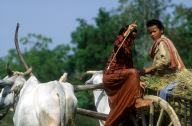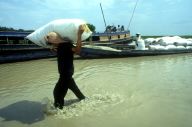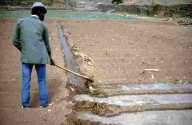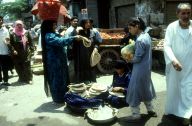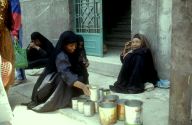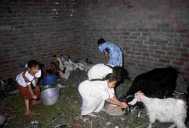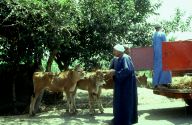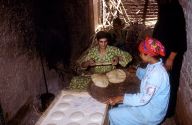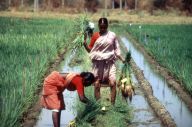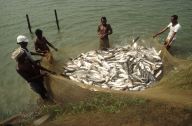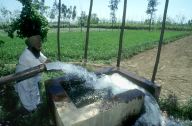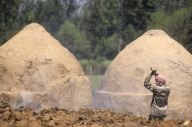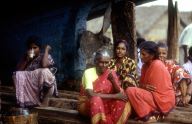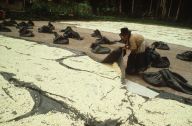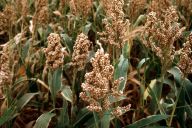| FFSnet Website | ||||||||||
|---|---|---|---|---|---|---|---|---|---|---|
|
| FFSnet Search |
|---|
| FFSnet Featured Pages |
|---|
|
Evolution of Farmer Field Schools in Ecuador
Information about the History and Evolution of Farmer Field Schools in Ecuador. Click here to visit this site |
| JFFS in Zimbabwe with emphasis on village poultry, food security and HIV/AIDS mitigation |
| Written by Arnoud Braun | |
| Thursday, 18 October 2024 | |
|
In farming households affected by HIV/AIDS, the illness or death of family members often has negative effects on family food security. Village poultry can provide a source of high quality nutrition and income without requiring much in the way of labour or financial inputs. In an article by Robyn Alders et al. in LEISA Magazine, two examples from communities affected by HIV/AIDS in southern Africa are presented, showing how improving the management of village chickens contributes to HIV/AIDS mitigation, principally through improved household food security and income generation. The first example describes the Junior Farmer Field School pilot in Zimbabwe. The International Crops Research Institute for the Semi-Arid Tropics (ICRISAT) and the Food and Agricultural Organisation of the United Nations (FAO) identified the Junior Farmer Field School (JFFS) concept as a useful way to assist rural youth in HIV/AIDS programmes. The JFFS programme provided technical, business and life skills, while at the same time providing some constructive activities to get junior farmers started in income generating enterprises to help support their families and themselves into the future. ICRISAT proposed using poultry as a model to develop farming/ entrepreneurial skills. Poultry offer several benefits; their high turnover rate allows rapid exposure of JFFS members to the production and marketing process which provides valuable experience in financial management and learning processes. JFFS members learn about extensive and semi-intensive poultry production systems to enable them to choose the production system(s) best suited to their individual situations. As young farmers develop their skills, they can graduate to other forms of agriculture including bee-keeping, pig production and milk production. The International Rural Poulty Centre was invited to assist ICRISAT and partners to develop and test curriculum and training modules on extensive and semi-intensive poultry production for use in both Farmer Field Schools and JFFSs in Chowonekano, Mhototi and Vukuso wards, southern Zimbabwe. Participatory curriculum development activities revealed that JFFS members were generally interested in poultry production. PRA tools were used to gain information on poultry production and poultry farmers’ aspirations. JFFS members indicated that they wished to know more about general poultry husbandry (e.g. housing, feeding, watering and disease control) and reproductive cycles (e.g. “I have a four week old chicken, when will it start laying eggs?”). The comparative production trials (looking at different options for housing, health and nutrition) that were developed for the JFFS members to implement during workshops have been modified over time to better suit local conditions. The IRPC worked with workshop participants to develop a manual on village chicken production for use by JFFS facilitators. The JFFS programme had a significant impact on the lives of the nine JFFS groups during the project (2004-2005), with their chickens contributing both to household food security and generating income. With the lessons learnt through this pilot programme, it is expected that the JFFS programme can be improved and expanded to enable young farmers to not only survive but also actively contribute to their communities. “We raise chickens for their eggs and so that they increase in number, so that we can sell and get money. If a child fails to get school fees, the chicken can be sold to get money. Money to buy sadza (maize meal) comes from chickens. Chickens give manure that we use in our gardens for green vegetables and tomatoes. When celebrating a birth I can also use a chicken as a gift. When I want someone to work in my fields, I can slaughter a chicken.” Ms. Nomsa Nkomo, JFFS member, Vukuso village, Zimbabwe Correct citatiion: Alders, R., B. Bagnol, M. Harun and M. Young, 2007. Village poulty, food security and HIV/AIDS mitigation. LEISA Newsletter 23-3: 20-21. Article details and Download |
|
| Last Updated ( Thursday, 18 October 2024 ) |
| < Prev | Next > |
|---|
| Latest in Database |
|---|
| FFS in pictures |
|---|
|
|
